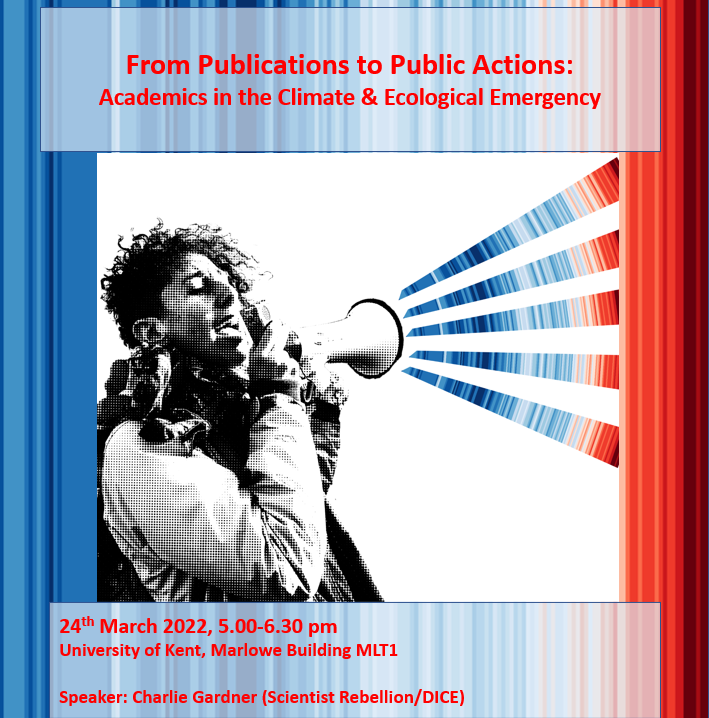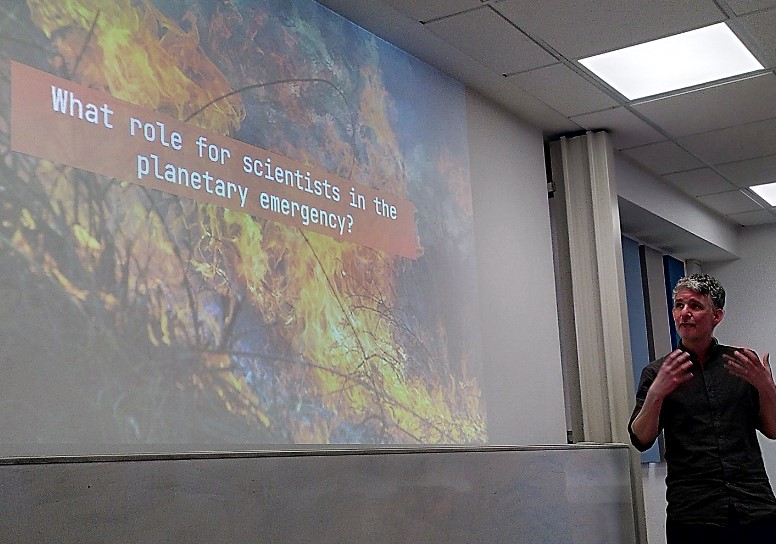
What is the role of scientists in the planetary emergency? We welcomed Dr Charlie Gardner back to talk to us about activism and academia.
On Thursday 24th April the School of Anthropology and Conservation welcomed back Associate Senior Lecturer Dr Charlie Gardner at Durrell Institute of Conservation and Ecology, who spoke about the changing role of academics in the climate and ecological emergency.
Charlie’s talk made the case that, while critically important, science alone is insufficient to bring about the required policy changes because governments respond primarily to corporate lobbying rather than scientific evidence. This is illustrated by governmental responses to climate change which, despite four decades of increasingly alarming scientific evidence, continue to promote the growth of fossil fuel production. Arguing that economic policy is determined by power and influence rather than evidence, Charlie suggested that scientists must become more powerful and influential, and that history shows that engaging in non-violent civil disobedience may be the most effective way to do so.

Drawing on examples from the Suffragettes and the Civil Rights Movement to Extinction Rebellion and the Greta Thunberg-inspired youth strikes, the talk discussed the power of civil disobedience to bring about rapid social change, and in particular its recent role in bringing the climate and ecological emergency to the forefront of the public, media and political conversation. For example, the environment and climate change became the single largest concern for the British public in November 2021, partly as a result of Extinction Rebellion actions.
Charlie suggested that, given their specialist knowledge and respected role in society, scientists can be a powerful force for change by participating in such movements. To illustrate, he discussed his work with the group Scientist Rebellion, which in November made headlines by blocking a bridge outside COP26 in Glasgow in the first mass arrest of scientists over the climate and ecological emergency.
The School of Anthropology and Conservation declared a Climate and Ecological Emergency in 2019 and has subsequently been working to reduce emissions and stimulate climate action across the school and wider university through its Sustainability Working Group.
To get involved, please contact the SWG Teams here.
Find out more about Scientist Rebellion on their Instagram and Twitter.